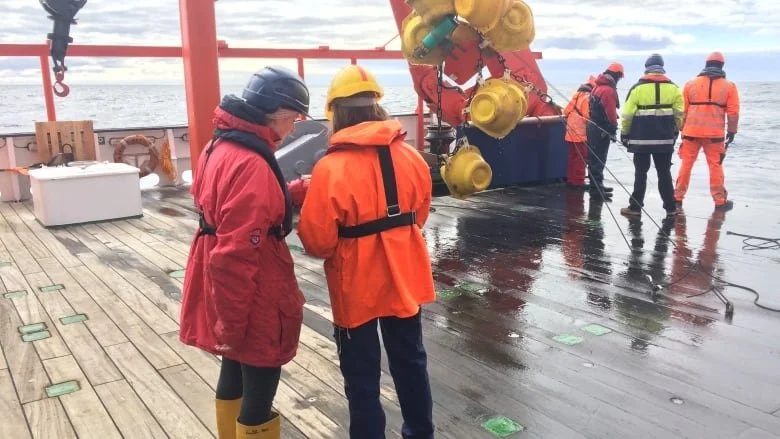A scuba diver cleaning part of the sea floor in a Vancouver inlet came across an animal that an expert says is a long way from home. The unusual find has been identified as a horseshoe crab, native to the Atlantic Ocean along the North American coastline. “This is not a species that’s indigenous to our water here, but as soon as I saw it, I knew what it was,” diver Henry Wang said in an interview.
Hibernia heading to trial over 2019 oil spill
Hibernia Management and Development Company Ltd. is challenging charges laid by Newfoundland and Labrador's offshore energy regulator in relation to a 2019 spill that sent 12,000 litres of oil into the Atlantic Ocean. Lawyers representing the energy giant entered not guilty pleas when the case was called in St. John's provincial court on Thursday.
The Labrador Sea keeps the world's oceans alive. Scientists are now closer to understanding how
Canadian and German scientists say they have measured the flow of oxygen in and out of the deep ocean in the Labrador Sea for the first time, providing new insight into what has been called "a lung of the ocean" that is vital for keeping marine life alive. The Labrador Sea is one of the few places where oxygen from the atmosphere is transferred to the deepest parts of the ocean and distributed throughout the Atlantic and eventually into the Pacific and Indian Oceans.
Can a paper mill solve a city's raw sewage woes? Corner Brook hopes so
Now, there's renewed hope from an unlikely source: Corner Brook Pulp and Paper, the mill that has occupied a swath of the the city's waterfront for almost a century. The mill has its own wastewater plant that processes its own effluent, and approached the city last year with an idea to examine expanding that to include municipal sewage. "We thought it was something that would make sense to look at," said Darren Pelley, the vice president and general manager of Corner Brook Pulp and Paper.
Arctic Ocean was once a tub of fresh water covered with a half-mile of ice
The Arctic Ocean was once a pool of fresh water capped with an ice shelf half as thick as the Grand Canyon is deep. If that's hard to envision, don't despair. Scientists were surprised at the discovery, published Wednesday (Feb. 3) in the journal Nature, as well. The trick to envisioning this odd arrangement is to think about the relationship between ice sheets and the ocean. When ice sheets melt, they dump water into the ocean, raising the sea level. But when ice sheets grow, as they have during Earth's glacial periods, sea level drops.






